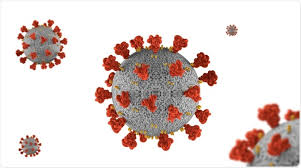A growing measles outbreak is sweeping across parts of the Midwest, with confirmed cases rising in Kansas, Ohio, and Michigan. Health officials are urging residents to take immediate precautions, emphasizing that vaccination is the most effective way to stop the virus from spreading.
Measles, a highly contagious disease that was nearly eradicated in the U.S., is making a troubling comeback. Public health experts say declining vaccination rates are fueling the resurgence, putting children, pregnant women, and those with weakened immune systems at serious risk.
Where Are the Cases Being Reported?
Ohio, Kansas, and Michigan have all confirmed multiple measles infections, with clusters forming in communities where vaccination rates are low.
-
In Ohio, cases have been reported primarily in children who were not vaccinated, raising concerns about further spread.
-
Kansas health officials are investigating new infections and working to contain the outbreak.
-
Michigan has also seen a rise in cases, prompting local health departments to issue warnings and increase access to vaccinations.
Why Is This Happening?
Measles spreads incredibly fast, with 90% of unvaccinated people exposed to the virus likely to get infected. The disease is airborne and can linger in the air for up to two hours after an infected person coughs or sneezes. With lower vaccination rates in some communities, the virus is finding new ways to spread.
What Are the Symptoms?
Measles symptoms typically appear 7-14 days after exposure and can escalate quickly. Early signs include:
-
High fever
-
Runny nose and cough
-
Red, watery eyes
-
A rash that starts on the face and spreads across the body
The virus can lead to severe complications, including pneumonia, brain swelling, and even death. Young children and immunocompromised individuals are especially at risk.
How Can You Stay Safe?
The best way to prevent measles is through vaccination. The MMR (Measles, Mumps, and Rubella) vaccine is about 97% effective after two doses. Health officials are urging parents to check their children’s vaccination records and make sure they are up to date.
For adults, especially those traveling internationally or working in healthcare, checking immunization status is critical to avoid infection.
What’s Next?
Public health departments in affected states are ramping up efforts to contain the outbreak, including vaccination clinics and contact tracing. Experts warn that without swift action, the virus could spread to other states.
If you experience symptoms or believe you’ve been exposed, contact a healthcare provider immediately. Early detection and prevention remain key in stopping the spread of this dangerous virus.











